Today Current Affairs: 17th February 2021 for UPSC IAS exams, State PSC exams, SSC CGL, State SSC, RRB, Railways, Banking Exam & IBPS, etc
Table of Contents
President Kovind Removes Kiran Bedi As Puducherry Lieutenant Governor:
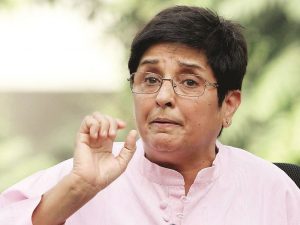
President Kovind removes Kiran Bedi as Puducherry’s Lieutenant Governor.
- Telangana Governor Tamilisai Soundararajan has been given the additional charge of Puducherry.
- Puducherry is a union territory that is governed by Article 239A of the Constitution.
- The Government of Union Territories Act, 1963 provides for a Legislative Assembly of Puducherry, with a Council of Ministers to govern the UT.
- The same Act says that the UT will be administered by the President of India through a Lieutenant Governor.
- Section 44 of the Act allows the LG to “act in his discretion” in the matter of lawmaking, even though the Council of Ministers has the task of aiding and advising him. In case of a difference of opinion between the LG and his Ministers on any matter, the Administrator is bound to refer it to the President for a decision and act according to the decision given by the President.
- However, the Administrator can also claim that the matter is urgent, and take immediate action as he deems necessary.
- Under Section 22 of the Act, prior sanction of the Administrator is required for certain legislative proposals. These include Bills or amendments that the Council of Ministers intends to move in the Legislative Assembly, and which deal with the “constitution and organization of the court of the Judicial Commissioner”, and “jurisdiction and powers of the court of the Judicial Commissioner with respect to any of the matters in the State List or the Concurrent List”.
Three New Variants Of Coronavirus Identified:

The WHO has identified three new variants of coronavirus originating in the UK, Brazil and now in South Africa.
- Of the three, the latest South African variant known as 20H/501Y.V2 or B.1.351, is different from the one in Britain and appears to be more infectious than the original virus.
- The South African variant carries a mutation called N501Y that appears to make it more contagious or easy to spread, a report in The New York Times said.
- Also, the WHO has said this variant “is less susceptible to antibody neutralization” than previous variants.
Net Neutrality:
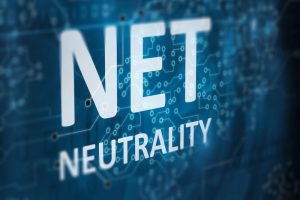
Industry body Cellular Operators Association of India (COAI) has urged the government to bring over-the-top (OTT) service providers like WhatsApp, Google Duo, etc under licensing regime and defer net neutrality rules on telecom operators till the time ‘same service same rules’ are applied on the apps.
- Telecom operators have been demanding that the government should impose ‘same service, same rules’ to provide a level playing field in the sector.
- But, recently Telecom Regulatory Authority of India (Trai) had recommended that no regulations should be imposed on the calling and messaging apps till time clarity emerges in the international jurisdictions.
- Till the time any decision is taken regarding licensing of OTT communication providers, the un-equitability between TSPs (telecom service providers) and OTTs should not be increased further in any manner.
- Therefore, till such time, no new licensing conditions, including that of traffic management practices for net neutrality, etc., should be imposed on TSPs.
Net Neutrality:
- It means that governments and internet service providers treat all data on the internet equally and do not differentially charge consumers for higher-quality delivery or giving preferential treatment to certain websites.
- Network neutrality requires all Internet service providers (ISPs) to provide the same level of data access and speed to all traffic, and that traffic to one service or website cannot be blocked or degraded.
Maharaja Suheldev:
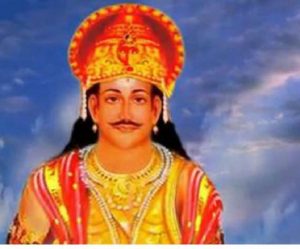
The Prime Minister has laid the foundation stone of a Maharaja Suheldev memorial and the development work of Chittaura lake in Uttar Pradesh’s Bahraich district.
About Maharaja Suheldev:
- He was the erstwhile ruler of Shravasti in Uttar Pradesh’s (UP) Bahraich district, who ruled in the 11th century.
- He is known in history for waging guerrilla warfare against Mahmud Ghazni’s large army.
- Suheldev was deeply moved by the loot and destruction of the magnificent Somnath temple by invader Mahmud Ghazni that he decided to gather heads of different communities like Tharu and Banjara as well as small kings to block the invasion.
- His army defeated and killed Ghazi Salar Masud, the nephew of Mahmud Ghazni, at Bahraich.
- Raja Suheldev finds mention in ‘Mirat-i-Masudi’, a 17th century Persian-language historical account.
- ‘Mirat-i-Masudi’ is the biography of Salar Masud, written by Abd-ur-Rahman Chishti during the reign of the Mughal emperor Jahangir (1605–1627).
- In local folklore, Suheldev is said to be a Rajbhar.
- He is popular as a caste icon among the Rajbhars (OBC) and the Pasis (second largest Dalit caste in UP), both of whom have been competing for his legacy and are predominantly found in central and eastern UP.
Fossils Of Coelacanth:

A group of paleontologists has discovered fossils of the coelacanth, a giant fish regarded as an iconic example of a “living fossil.”
- The discovered fossil of Coelacanth is believed to be 66 million years old belonging to the Cretaceous era.
- Coelacanths are elusive, deep-sea creatures, living in depths up to 2,300 feet below the surface.
- These were thought to have gone extinct with the dinosaurs 65 million years ago.
- But its discovery in 1938 started a debate about how this lobe-finned fish fits into the evolution of land animals.
- There are only two known species of coelacanths: one that lives near the Comoros Islands off the east coast of Africa, and one found in the waters off Sulawesi, Indonesia.
- Living Fossil is an organism that has remained unchanged from earlier geologic times and whose close relatives are usually extinct.
- Other than Coelacanth, Horseshoe crab and ginkgo trees are examples of living fossils.
- However, in their new study, paleontologists have found that Coelacanths gained 62 new genes through encounters with other species 10 million years ago.
- This suggests that they are actually evolving, albeit slowly
- IUCN Status: Critically Endangered
- Sulawesi Coelacanth is listed as ‘vulnerable’.
- CITES Status: Appendix I
Instant Messaging Platform:
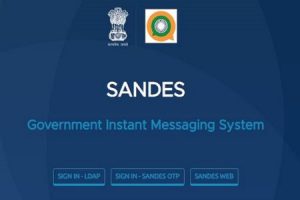
The National Informatics Centre (NIC) has launched an instant messaging platform called Sandes on the lines of WhatsApp.
- NIC is under the aegis of the Ministry of Electronics and Information Technology. It provides network backbone and e-Governance support to the Central Government, State Governments and UT Administrations.
Sandes App:
- It is a Government Instant Messaging System (GIMS) that can be used for official or casual use by any Government employee or public user having a valid Mobile No./Email ID.
- It offers features such as group making, broadcast message, message forwarding and emojis.
- Although there is no option to transfer the chat history between two platforms, the chats on GIMS can be backed up to a users’ email.
- The user will have to re-register as a new user in case they wish to change their registered Email Id or phone number on the App.
- It allows a user to mark a message as confidential, which will allow the recipient to be made aware the message should not be shared with others.
Diesel And Petrol Prices Hike:
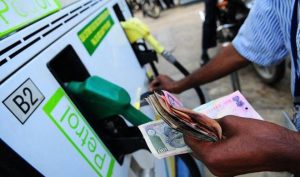
Diesel and petrol prices have hit record highs across the country, with petrol touching Rs 89 per litre in Delhi, and diesel reaching a new high of Rs 86.30 per litre in Mumbai.
- The government reasons that global crude oil prices have risen by more than 50 per cent to over $63.3 per barrel since October, forcing oil retailers to increase pump prices.
- Retail petrol and diesel prices are in theory decontrolled — or linked to global crude oil prices. Which means that if crude prices fall, as has largely been the trend since February, retails prices should come down too, and vice versa.
- But this does not happen in practice, largely because oil price decontrol is a one-way street in India. So, when global prices go up, the resultant increase is passed on to the consumer, who has to cough up more for every litre of fuel consumed.
- But when the reverse happens and prices slide, the government, almost by default, slaps fresh taxes and levies to ensure that it rakes in extra revenues.
- The main beneficiary in this subversion of price decontrol is the government. The consumer is a clear loser, as are the fuel retailing companies.
- Brent crude, which was trading at about $40 per barrel between June and October, started rising in November, and has gone past the $60 per barrel mark as the global rollout of Covid-19 vaccines gathers pace.
- The controlled production of crude amid rising demand has been another key factor in boosting oil prices, with Saudi Arabia voluntarily cutting its daily output by 1 million barrels per day to 8.125 million barrels per day through February and March.
809th Urs Of Khwaja Moinuddin Chisti:

Prime Minister Modi has handed over a Chadar that would be offered at the Ajmer Sharif Dargah on the 809th Urs of Khwaja Moinuddin Chisti.
- Ajmer Sharif Dargah is a Sufi shrine (dargah) of the revered sufi saint, Moinuddin Chishti, located at Ajmer, Rajasthan. The shrine has Chisti’s grave (Maqbara).
- The Urs festival is an annual festival held at Ajmer, Rajasthan which commemorates the anniversary of the death of Sufi saint Moinuddin Chishti, (founder of the Chishtiya Sufi order in India).
- It is held over six days and features night-long dhikr (zikr) qawwali singing.
- The anniversary is celebrated in the seventh month of the Islamic lunar calendar.
Amendments To The Juvenile Justice Act, 2015 :
The Union Cabinet has approved the amendments to the Juvenile Justice Care and Protection of Children Act, 2015 on February 17, 2021.
- The amendment proposes that the DMs, ADMs will monitor the functioning of agencies that are implementing this activity in each district.
- After this amendment, the Child Protection Unit of districts will function under the District Magistrate (DMs).
- Now, the DMs can independently evaluate Child Welfare Committee and the Specialised Juvenile Police Unit.
- He can check the capacity and background of the Child Care Institute, following which they will be recommended for registration.
- The amendments authorize the District Magistrate along with Additional District Magistrate to issue the adoption orders in accordance with Section 61 of the Juvenile justice act.
- It will now ensure the speedy disposal of cases and also enhance accountability.
- The amendments also empower the District Magistrates to ensure its smooth implementation and garner the synergized efforts to support the children in distress conditions.
Juvenile Justice (Care and Protection of Children) Act, 2015
- The act was passed by the Parliament of India by replacing the Indian juvenile delinquency law called the Juvenile Justice (Care and Protection of Children) Act, 2000.
- This act allows the juveniles, aged 16 to 18 who are in conflict with Law and are involved in Heinous Offences, to be tried as adults.
- It also seeks to create a universally accessible adoption law in India.
- The Act came into force in 2016. In order to smoothen the procedures for the orphan, abandoned, and surrendered children the Central Adoption Resource Authority (CARA) was given the status of statutory body.
Draft Blue Economy Policy for India:

The Ministry of Earth Sciences has asked for suggestions on the Draft Blue Economy Policy for India. The stakeholders such as NGOs, industry, academia, and citizens have been asked to submit their inputs and ideas by 27th February 2021.
- The Draft Blue Economy Policy was created by the government outlining the vision and strategy that can be adapted to utilize the oceanic resources that are available to the country.
- The policy was drafted with the aim of enhancing the contribution of the blue economy to India’s GDP.
- It also seeks to improve the lives of coastal communities and preserve marine biodiversity.
- It will also maintain the national security of the marine areas and resources.
- The draft blue economy document has recognized the seven thematic areas such as:
- National accounting framework of the blue economy and ocean governance;
- Coastal marine spatial planning and tourism;
- Marine fisheries, fish processing, and Aquaculture
- Manufacturing, services, trade, technology, and skill development;
- Logistics, infrastructure, and shipping
- Coastal & deep-sea mining and
- Offshore energy & security, strategic dimensions, and international engagements.
- Thus, the blue economy of India is a subset of the national economy that caters to the entire ocean resources system.
- The policy also caters to the human-made economic infrastructure in marine, maritime, and onshore coastal zones in India’s jurisdiction.
- The policy is also linked with the production of goods and services which is ultimately linked with economic growth, environmental sustainability, and national security.
- The draft policy also suggests offering the Blue Economy-related educational programs comprising of various technical and managerial skills in universities and technical institutes along with the coastal states of India.
Blue Economy:
- The concept of the blue economy aspires to promote economic growth and social inclusion. It is also involved in the preservation or improvement of livelihoods.
- It also seeks to ensure environmental sustainability in the oceans and coastal areas.
- It comprises the sectors for which the returns are linked to living renewable resources in the oceans like fisheries.
- It also comprises the sectors whose return comes from non-living & non-renewable resources including seabed mining, dredging, and offshore oil & gas extractions.
Iran-Russia Maritime Security Belt 2021:

India has joined the “Iran-Russia Maritime Security Belt 2021″ which is a two-day naval exercise. The exercise is being held in the northern part of the Indian Ocean.
- The drill was participated by the forces and vessels from navy divisions of both the Iranian army and Islamic Revolutionary Guard Corps (IRGC).
- Several vessels from the Russian navy also participated in the drill.
- Indian Navy has also joined the exercise with selected vessels.
- The drill will also be participated by the Chinese Navy.
- It will cover an area of 17,000 square kilometers.
- The naval exercise will carry the range of activities including the shooting at sea targets, air targets, the liberation of the hijacked ships, anti-piracy operations, and search & rescue operations.
ECOPact:

ACC Ready Mix Concrete has recently introduced its new low carbon range of concrete called ECOPact. It is a “Green Concrete” that has been introduced for a high-performing, sustainable and circular construction.
- ECOPact was launched in Mumbai and Hyderabad in the first phase.
- It will be rolled out across the country in a phased manner within a few weeks.
- The ECOPact was rolled out with the objectives of enhancing the transition towards low-carbon and circular construction.
- The innovative manufacturing process of the ECOPact will reduce CO2 emissions by up to 100 percent.
- It will also enhance the sustainable product offerings in the construction industry.
- It is a concrete that comprises 30-50 percent lower embodied carbon content as compared to the reference concrete which is designed with OPC.
- This innovative range uses CO2-reduced binders.
- It was manufactured using optimized mix designs in order to reduce the carbon footprint.
- It is suitable for all structural components ranging from foundations including elements such as columns, external or internal walls, beams, slabs, driveways, and walkways.
Credit Default Swap:
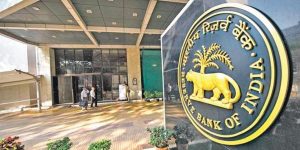
The Reserve Bank of India revealed the credit default swaps (CDS) and has allowed the retail users to do the transactions in permitted credit derivatives in order to hedge their underlying credit risk.
Key Highlights:
- As per the guidelines, the non-retail users will be allowed to do the transactions in credit derivatives for the purpose of hedging as well as other purposes.
- The person who is resident in India and a non-resident can participate in the market.
- As per the guideline, the exchanges can offer standardized single-name CDS contracts by specifying guaranteed cash settlement.
- The commercial papers, listed or unlisted rated rupee corporate bonds, Unrated bonds issued by the special purpose vehicles, certificates of deposit and non-convertible debentures of maturity up to 1 year are eligible to be a reference or deliverable obligation in the CDS contract.
Credit Default Swap:
- It is a derivative or contract that permits the investor to swap or offset his credit risk with another investor.
- It is a financial swap agreement where the seller of CDS will compensate the buyer in case of a debt default.
- In such agreement, the seller of CDS insures the buyer against asset defaulting.
- Here, the buyer of CDS makes a series of payments to the seller and expects to receive a payoff in case of asset defaults.
- In case of asset default, the buyer of the CDS receives compensation while the seller of CDS takes possession of the defaulted loan.
- The CDS can be purchased by anyone even those buyers who do not hold the loan instrument can buy CDS.




